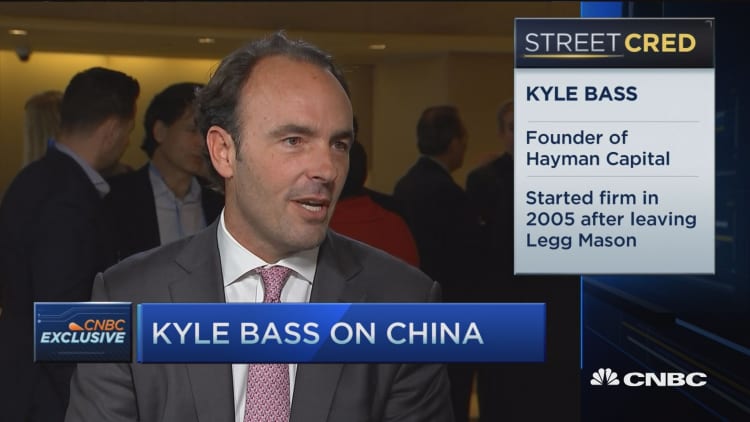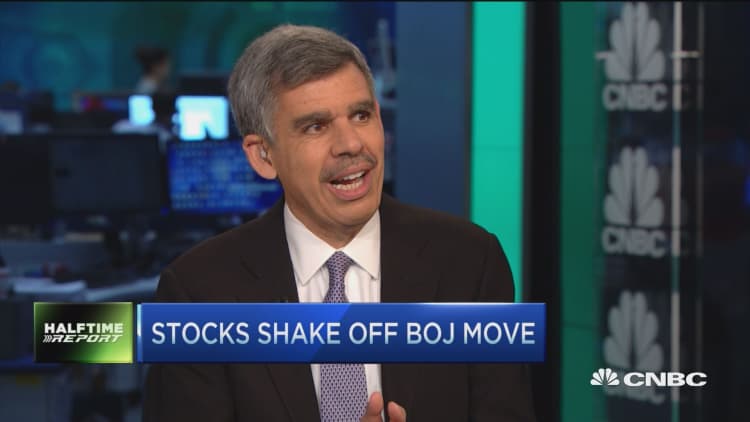
Longtime Asia bear Kyle Bass doesn't know what's next for the Bank of Japan.
Bass, chief investment officer at Hayman Capital Management, spoke exclusively with CNBC's David Faber on "Closing Bell" from the Milken Institute's Global Conference in Beverly Hills, California, on Tuesday.
Bass said it's clear that negative interest rates aren't working for Japan. With the yield curve "as flat as a pancake," Bass said it is unclear what the next move is for BOJ Governor Haruhiko Kuroda.
"The textbooks aren't working for the academics ... I fear they're going to have to go into some sort of jubilee where the central bank just forgives the debt that they own," said Bass.
"I don't know what happens to the yield curve then. The unconventional policies aren't working, so they're going to have to go to unconventional, unconventional policies next. I don't know where that takes them," he said.
While some investors may see some optimism in China, hedge fund manager Bass says nothing has changed his bearish outlook and if anything, it's only solidified. He has previously said that the yuan will be devalued 30 to 40 percent on the back of loan losses in China's financial sector.
Last week, CNBC's Scott Wapner reported that Bass plans "to launch a new China Opportunities Fund to take advantage of nonperforming loans and currency devaluations."
A note from Hayman to investors stated that recent events "represent what we believe to be the beginning of the unraveling of the Chinese credit system."
In April, billionaire George Soros said that China's growth has been fueled by debt and unsustainable credit expansion, and that China today looks disconcertingly similar to the U.S. before the subprime mortgage crisis. Soros' opinion is one that Bass said he "would absolutely agree with."
Bass has previously stated that the $34.5 trillion in asset growth of Chinese banks in the last 10 years has been fueled primarily by rapid credit expansion.
"China's [banking] system is even more precarious when we realize that, even at the biggest banks, loans are not made to borrowers based on their ability to repay," Bass wrote in a February letter to investors. "Instead, load decisions are political decisions made by the state."

Bass said that the investment vehicles that led to the U.S. crisis were "only 2.5 percent of [the U.S.] system."
"In China it's four times worse in a system that's twice as large as ours was," he said.
Some China bulls may say that there's hope as the economy transitions to being more service based, but Bass doesn't buy that argument.
"When you go to a service-based economy, whether you look at JD.com or you look at Alibaba, those are not jobs-intensive businesses," he said.
"You're going from an economy where you had to come up with 20 million new jobs a year to almost break even and keep the current administration in place to a new economy that's not capital intensive or jobs intensive," Bass explained.
"It's going very quickly, but what does it do for a nation where you're trying to pull everyone out of poverty?"
— CNBC's Scott Wapner, Tae Kim and Leslie Shaffer contributed to this report.



